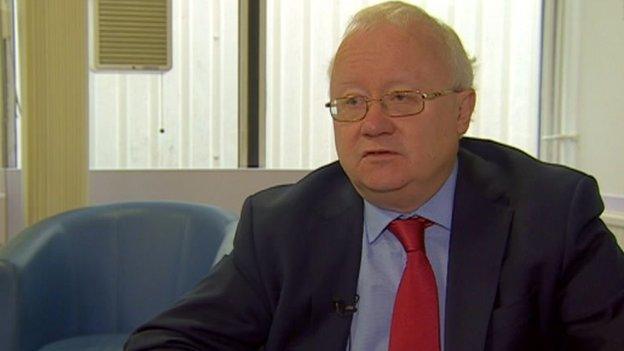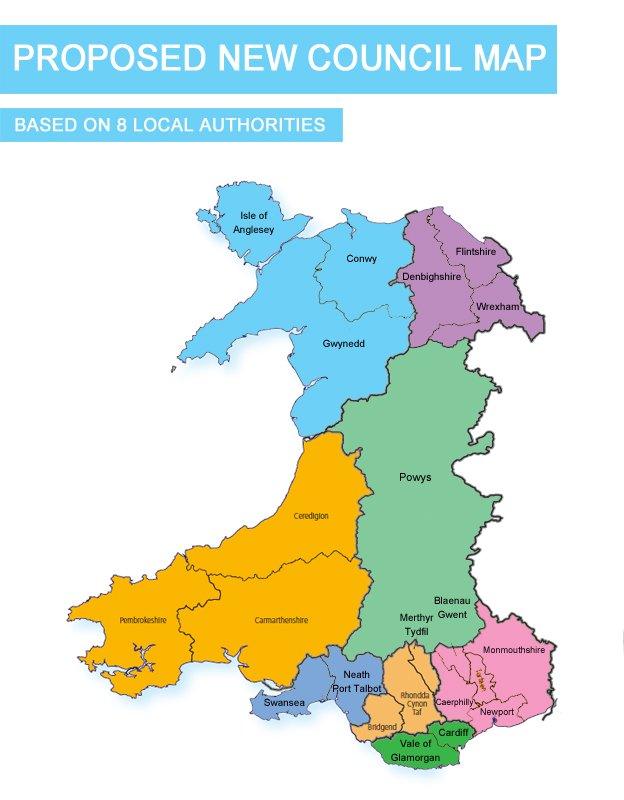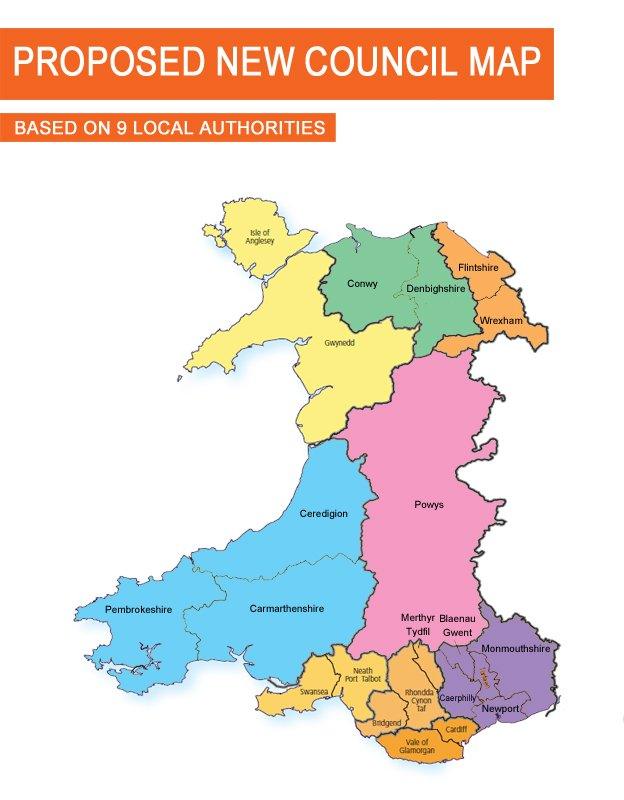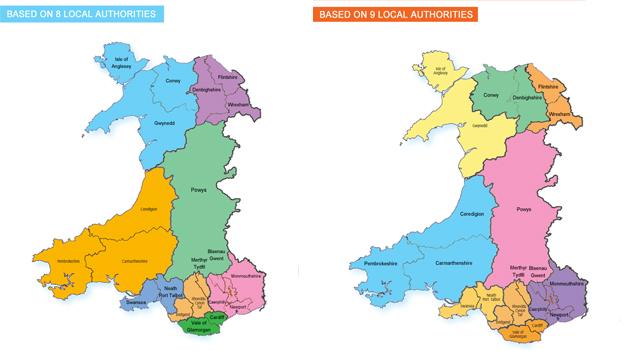Leighton Andrews talks to council leaders on reorganisation
- Published

Leighton Andrews announced proposals on Wednesday to cut the number of councils in Wales from 22 to eight or nine
The public services minister Leighton Andrews will strike a conciliatory tone when he addresses council leaders at their annual conference in Swansea today.
In a way, the tough talking has already been done with the outlining of proposals to bring the number of councils down to single figures from the existing 22.
Council leaders desperate to avoid this, and there are plenty of them, will be hoping that Labour is not in a position to deliver on the pledge after next year's assembly election results are known.
Labour does not have a majority at the assembly now and the inability to strike some kind of deal with any of the opposition parties shows no sign of abating.
There is a view among some insiders that these plans will not see the light of day, or as one AM put it to me: "It's like writing the menu for the return journey of the Titanic."
Despite the challenge of having to win a majority next year to ensure the new plan does become a reality, Leighton Andrews clearly feels he has stolen a march on the opposition by making Labour the only party which will campaign on reducing the cost of politics by cutting back on 22 separate entities.
The political calculation is that the majority of people agree with him that 22 is too many.
The other calculation is that while council reorganisation is not up there among the top three issues of health, education and the economy, it at least shows the willingness of the administration to take on the status quo.

Labour has been in power in Cardiff Bay since the start of devolution, and it is sensitive to the accusation of being stale and this could be a way of turning the narrative around.
It could also be a way of turning the narrative away from health which is threatening to dominate next year's assembly elections in a way it has never done before.
None of the council leaders gathering in Swansea will want to be seen to be blocking reform.
When you ask them, the vast majority say they believe change has to happen, but not reform in a way that would see most of them disappear, to be replaced by counties representing areas that were last lumped together in the 70s, 80s and early 90s.
One former leader unkindly suggested that the proposals for eight or nine smacked of a civil servant dusting the plan from the shelf because there had been a failure to come up with any new ideas.
If Labour's proposals come to pass, they will lead to the return of the big beasts of the council world.

The new leaders will command big organisations responsible for delivering services to populations of around half a million people in some cases.
It is this power which is the carrot that Leighton Andrews will dangle for them, claiming that the new bodies will have a far greater national voice and more potential to take on devolved services.
But all of these promises are being made against the backdrop of shrinking budgets, which is causing some in local government to question the very survival of many of the services they carry out.
The issue of cuts is being used in contrasting ways. The Welsh Local Government Association (WLGA) says the level of cuts is why re-organisation is an unnecessary distraction, while the Welsh government says the cuts are exactly why there should be reform so that an estimated saving of £60m a year can be made.
There will be plenty of claims and counter claims made about the savings and the costs of setting up new organisations and making people redundant.
All said and done, the key question is whether any of these changes will lead to better services for the public. And no-one knows the answer to that question.
- Published17 June 2015

- Published17 June 2015
